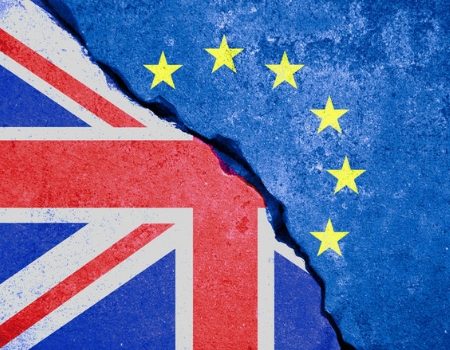 “The UK will probably need to align itself with the environmental strategies and direction of the EU (which begs the question, why leave?) without however having a say in formulating them.”
“The UK will probably need to align itself with the environmental strategies and direction of the EU (which begs the question, why leave?) without however having a say in formulating them.”
By David Newman, managing director at Bio-Based and Biodegradable Industries Association (BBIA).
I am still in a state of denial. I cannot believe people as seemingly intelligent as the British could have voted to leave the European Common Market, a market which supports 40% of inbound and outbound trade. Sort of like California leaving the USA except the UK does not have the same immigration or currency obligations the 50 States of the USA have to each other. So, whatever I have read has been met with a shrug of my shoulders and a genie in my brain saying “surely this can’t be true?”
But it may well be true. Sorry, I am making no apologies for believing Brexit to be total madness driven by extreme right-wing libertarians, nostalgic post Communists and ingenuous, sometimes racist voters ignorant of what the EU is and has contributed. Unless good sense prevails March 29th sees the UK leaving the EU. We may leave softly, we may leave brusquely. But in a few years’ time, whichever way we leave, we will be alone, a country searching for trading and political partners in an era in which globalisation has driven the economies of scale, unification, trading regions, and trans-national partnerships. Britain turns the clock back on history.
For the bioeconomy what changes? Well tariffs change the game for many industries. Whilst we do not export huge amounts of innovative bioeconomy technologies (bioplastics, biopolymers, biocoatings, bioinsecticides, biolubricants, biomedical ware, and so on) tariffs will make our exports more expensive. The feedstocks we use to make these products, if imported, will also become more expensive. And don’t let me hear the mantra about devaluation, that only makes imports more expensive too and given the devaluation we have had so far due to Brexit there is no evidence this has driven exports.
Then there are the regulations and strategies. The UK will probably need to align itself with the environmental strategies and direction of the EU (which begs the question, why leave?) without however having a say in formulating them. This is because it would be improbable our industries formulate for example, national standards different from the EU.
How would we export to them with non-compliant standards? And were we to start to import feedstocks from the USA for example containing GMOs how would we then be able to re-export products to the EU containing feedstocks banned there?
So, I do not predict that the UK will be able to distance itself dramatically from the EU in terms of standards either for feedstocks or for exported products.
The nostalgic post-Communist left featuring Mr Corbyn will say that under Brexit the UK is free to give State aid to industries to protect them against the winds of free trade. Sadly, in the 21st Century this does not work anymore. So, I believe that if ever the Labour Party wins a General Election under Brexit and tries to protect nascent UK bioeconomy industries will we see a country running itself into the ground very quickly. Look at the 1970s all over again- and people forget we went cap in hand to the IMF twice to be bailed out in the 1970s and 1990s.
And on the other side of the scale, were the libertarians wanting a low tax, low regulation economy to thrive, we would see the end of the bioeconomy and a return to oil and gas, even coal. Because the extreme right wing are also climate deniers. So, Brexit is going to play out disastrously for the bioeconomy if it goes to either extremes.
What is the best we can hope for? Ironically Mrs May (and I am not Conservative card carrier or voter) has the most balanced approach. A continuing alignment with Europe, a slow exit, adhering to EU policies and standards. All this helps the bioeconomy, it helps the new Resource and Waste Strategy, it helps our industries adjust to a new reality over a period of years.
In a flood the best thing you can do is grab a lifebelt. Otherwise you will drown. A slow and moderated departure from the EU may be the only lifebelt we in the bioeconomy can hold onto-hoping the waters recede soon enough for us to get back to dry land and start to walk again.
Author: David Newman, managing director at Bio-Based and Biodegradable Industries Association (BBIA).
This feature first appeared in Issue #14 of the Bio-Based World Quarterly. Guest posts do not necessarily reflect the views of Bio Market Insights’ editorial team and management.
You may also be interested in reading…
Read: Integrating circular economy and bioeconomy would improve European sustainability; report.





